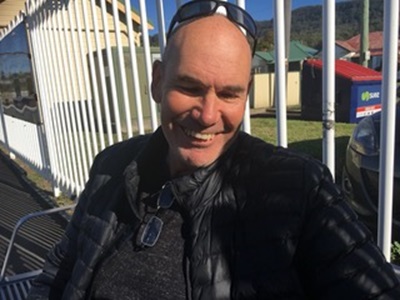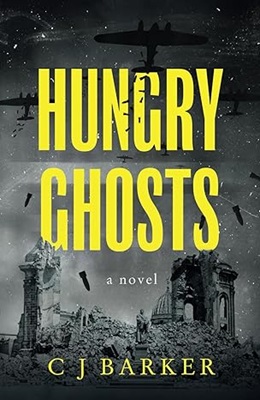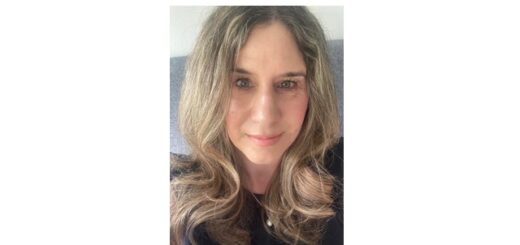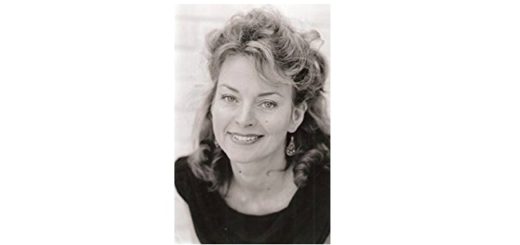Interview with Author C J Barker
C J Barker
I am thrilled to have interviewed author C J Barker, who shared with us details of his writing life, his book ‘Hungry Ghosts‘, which was released on 18th April 2024, and answered a few fun questions. This post contains affiliate links.

Born in England, resident in Thirroul, Australia, C J (Chris) Barker has been an educator in schools and universities in the UK and Australia.
He has published several non-fiction books, and now writes fiction between stints in the garden, where he grows vegetables and looks after chickens. He has published short stories in England, America and Australia.
1) Where did the inspiration for your book come from?
The inspiration for Hungry Ghosts came from my family, specifically my parents and my relationship with them. I like to say that I took my experience and put it through a prism, so that it went in white and straight, and came out bent and colourful.
None of the characters are my parents or me; nor did the events in the book take place exactly as I wrote them. There is, however, an emotional resonance in the book that owes something to my experience of my family. I had a difficult relationship with my father and Hungry Ghosts is my letter of understanding and forgiveness.
As a child and young man, I could not comprehend him and why he behaved as he did. He became an alcoholic and there was often a feeling of dread in the house. What would he do next? I have grappled with the question of why he became that kind of man most of my life, and now feel I can understand him, and my mother, in a way I could not before. I have no doubt my father suffered from what we now call PTSD, though as a child and young man I did not understand this. I suspect this may be true of many of my generation whose parents lived through WWII. And for subsequent generations who lived through other wars and continue to do so.
2) How did you plan out the plot?
I began thinking about Hungry Ghosts in terms of intergenerational trauma because I believe that the distress and damage experienced by my parents’ during WWII has manifested itself in me. I have had periods in my life, thankfully past, when I struggled with anxiety and depression, and this led me to explore my relationship with my parents.
As I considered a story to make that theme concrete, a bunch of ideas and feelings buzzed around my head for quite some time. As they cohered into some kind of narrative, I wrote them down and played around with them on paper. In due course I came up with a scaffold, a broad structure. Then I started writing.
I am more of a ‘pantser’ than a ‘plotter’ and so my initial structure was loose. I started writing and as I wrote the story grew, changed and developed. Once I arrived at a first draft, I had something more solid to work with. As I revised once more, it changed again. It was an ongoing iterative process of multiple drafts. At a certain point, but not too soon, I found it useful to get feedback from other people as well.
3) When did you choose the title for your book?
The title Hungry Ghosts came right at the end of the process. I had a series of different working titles along the way. After I had discussed the book with an editor, we decided on two options, one of which was Hungry Ghosts.
The idea of Hungry Ghosts, the meaning of which is outlined in the book, came from my experience with Buddhism. In short, Hungry Ghosts are people who are never satisfied with their life, always wanting something more, they are never happy with what they have right now. I suggest that war creates Hungry Ghosts.
4) How did you come up with the names for your characters?
I was looking for English names from the 1930s for the two central characters. Vic was my father’s middle name. Ruth, I plucked out of thin air. It had a resonance for me. I don’t really know why, but this is telling in and of itself, because there is so much about writing a novel, at least for me, which is mysterious. Nor do I know why I picked the name James for their son, other than I wanted a name that had two versions, in this case, James and Jimmy. I wanted a formal name and a familiar name that only Ruth, his mother, would use.
5) How did you go about researching the content for your book?
I researched the book in multiple ways. I talked with my mother when she was alive about her wartime life; I looked through her photographs; I read books about the history of WWII and the late 1960s; I did online research, for example I read accounts of WWII and the San Francisco ‘Summer of Love’; and I watched a lot of films set in those historical periods. And then, of course, I made stuff up!
6) What made you choose this genre?
The genre chose itself. Since I was exploring my parents experience, it necessarily became a WWII novel. The late 60s was very influential on my formative years (though I am a bit young to have been directly involved) and the period fitted the life span for a son of Ruth and Vic, the central wartime characters. So, we see in Hungry Ghosts the impact of parents’ war time experience on their children. I suggest that some dimensions of the social and political movements of the late 1960s are a response to the traumatised WWII parental generation.
7) How long did it take you to complete your book?
This, as I am sure readers understand, is an impossible question to answer, or at least it has many answers. On one level, the book has unfolded since I was born sixty years ago because it originated in my family. On another, more pragmatic level, the germ of the book arose 10 years ago, but manifested itself in other stories first. In the more concrete form of this story, Hungry Ghosts, it took perhaps 3 years of thinking, researching and writing.
8) Can you describe your book in three words?
Family, trauma, love (I would put ‘and’ in, but that would make it four!)
9) What’s the hardest part of being a writer?
Writing into the void; not knowing if anyone will read it or like it. Not to mention the rejection letters, or worse still, the deafening silence from agents and publishers. In the end, I believe one must write for oneself. I write because I enjoy the process. I write because it’s a form of self-exploration. I write because I feel compelled to do so.
10) Why should our readers pick your book up?
Hungry Ghosts is a story about the human condition. Though it is an historical novel, the themes are universal: family, suffering, conflict, redemption and love. How could readers not be interested in that? And if readers are interested in WWII and the summer of love, that’s a bonus.
Also, I write in a minimalist style, so its relatively easy to read, without lots of twisty sentences. I believe in saying a lot with a little (think: Hemmingway, M J Hyland: Colm Toibin). I am not a fan of multi-clause sentences and ‘literary flourish’ for its own sake.
Publisher – Book Guild Publishing
Pages – 360
Release Date – 18th April 2024
ISBN 13 – 978-1916668447
Format – ebook, paperback
Synopsis
The lives of Vic Woods and Ruth Wolfe, working-class teenagers from Liverpool and London, are profoundly disrupted by the arrival of World War II. Ruth’s journey leads her to aerial photographic interpretation, though her aspirations for advancement are denied, while Vic’s wartime experiences with bomber command haunt him long after the war is over. Their post-war marriage and tumultuous relationship with their son, James, make for a gripping narrative of trauma, conflict and, ultimately, love.
Set against the backdrop of World War II and the social upheaval of the late 1960s, Hungry Ghosts transports readers into the drama of two pivotal eras in history, exploring the intergenerational impact of war, particularly on the intricate relationships between fathers and sons.
Hungry Ghosts is not just a war story; it’s a timeless exploration of family bonds and the indelible scars left by war.
Purchase Online From:
Fun Questions

1) Do you have a writing buddy?
I don’t have a writing buddy as such, though I have friends who write with whom I discuss ongoing work. I like to look out of my window at the birds who feed on the bushes. I also keep chickens and while they are good listeners, they have never offered me anything much in the way of advice.
2) Do you have any writing quirks?
Silence and coffee, preferably in the morning. I am early riser, and the coffee kicks me into writing mode. I am seriously noise averse and I can’t easily focus if it’s noisy. I hate having my concentration interrupted by radios, cars, shouting etc.
3) Where do you write?
I have a little office space at the front of my house through which I can see the green escarpment and the birds that come to feed on the grevilleas in my garden.
4) Your book has been made into a movie, you’ve been offered a cameo role, what will you be doing?
I’ll leap on stage and dance wildly to the Grateful Dead live at Filmore in San Francisco. This scene occurs in the final third of the book. The whole summer of love, 1960s, thing was influential on me growing up in Cambridge (UK), where of course there are lots of students. I am too young to have been a Hippie of the 1960s but the vibe was important to me, man!
5) A talking owl has just finished reading your book, what’s the first thing he says to you?
‘Your trippy scenes are not as wild as Lewis Carol’s. I knew him you know.’
Author links
Goodreads
Website
A big thank you to C J Barker for sharing his writing life with us and for a wonderful interview.






